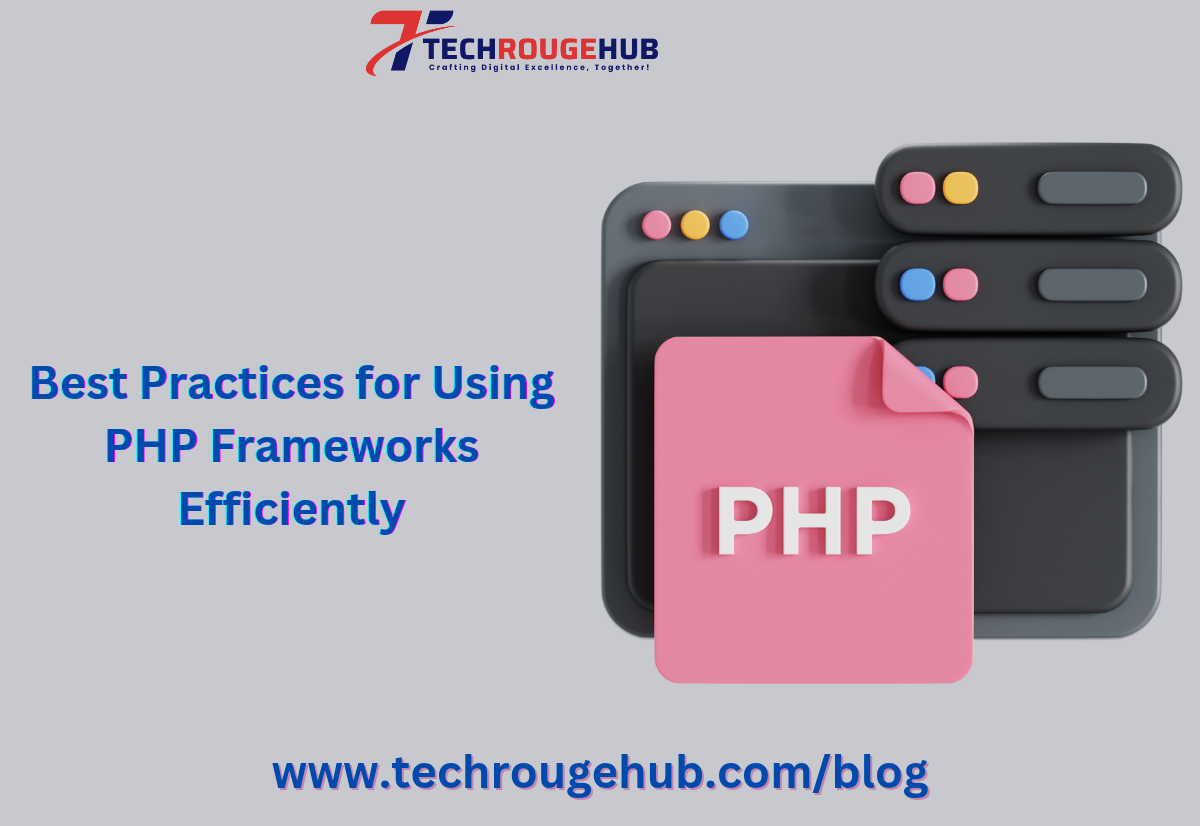PHP frameworks make web development faster, more organized, and scalable. However, to maximize their benefits, developers should follow best practices to write clean, maintainable, and efficient code. In this blog, we’ll explore key strategies to enhance your development workflow using PHP frameworks like Laravel, CodeIgniter, Symfony, and Yii.
1. Choose the Right Framework
Not all PHP frameworks suit every project. Consider:
- Laravel: Best for large applications, offers MVC architecture and built-in security.
- CodeIgniter: Lightweight, ideal for small projects with minimal configurations.
- Symfony: Preferred for enterprise-level applications due to its flexibility.
- Yii: Good for high-performance applications with built-in security features.
Choose the framework that aligns with your project requirements.
2. Follow MVC Architecture
Most PHP frameworks support the Model-View-Controller (MVC) architecture, which helps separate business logic from the UI. This ensures:
- Better code organization
- Easier maintenance and scalability
- Clear separation of concerns
Always structure your project properly by placing business logic in models, handling requests in controllers, and keeping views clean.
3. Optimize Database Queries
- Use Eloquent ORM (Laravel) or Query Builders to prevent SQL injection.
- Implement caching mechanisms (e.g., Redis, Memcached) to reduce load times.
- Avoid unnecessary queries by using lazy loading and optimizing indexes.
- Use database migrations for version control.
Efficient database handling leads to improved performance and scalability.
4. Utilize Built-in Security Features
Security is crucial in web applications. Most PHP frameworks provide built-in protection against:
- SQL Injection (Use prepared statements)
- Cross-Site Scripting (XSS) (Sanitize input/output)
- Cross-Site Request Forgery (CSRF) (Use CSRF tokens)
- Authentication & Authorization (Use built-in authentication systems like Laravel’s Sanctum or Passport)
Never disable security features for convenience.
5. Use Dependency Injection
Rather than hardcoding dependencies, use Dependency Injection (DI) to improve maintainability and testing. Most frameworks provide DI containers to manage class dependencies efficiently.
Example in Laravel:
class UserController {
protected $userService;
public function __construct(UserService $userService) {
$this->userService = $userService;
}
}
This approach enhances testability and modularity.
6. Write Modular and Reusable Code
- Use Helpers and Services: Extract reusable code into helper functions or service classes.
- Leverage Middleware: Handle request processing logic like authentication and logging.
- Follow SOLID Principles: Ensure code is well-structured and maintainable.
By writing modular code, you reduce duplication and make future updates easier.
7. Enable Caching for Better Performance
Caching reduces load times and improves efficiency. Use:
- View Caching: Store rendered views for quick response times.
- Query Caching: Save frequent database queries.
- Object Caching: Store API responses and computed data.
Popular caching tools include Redis, Memcached, and APCu.
8. Keep Configuration Files Secure
- Store sensitive data (API keys, DB credentials) in .env files instead of hardcoding.
- Restrict access to configuration files using server settings.
- Use version control but avoid committing sensitive files.
Secure configuration management prevents security vulnerabilities.
9. Test Your Code Regularly
PHP frameworks support automated testing to prevent bugs. Use:
- Unit Tests: Test individual components.
- Feature Tests: Validate user flows.
- Integration Tests: Ensure modules work together seamlessly.
Laravel provides PHPUnit integration for efficient testing.
10. Follow Coding Standards and Best Practices
Adopt PHP coding standards to maintain readability and consistency:
- Use PSR-4 Autoloading.
- Follow PSR-12 Coding Style.
- Use meaningful variable and function names.
- Document code with proper comments and docblocks.
Using tools like PHP CodeSniffer helps enforce these standards.
Conclusion
Efficient use of PHP frameworks enhances performance, security, and maintainability. By following best practices like structured MVC implementation, optimized queries, security measures, caching, and automated testing, developers can build scalable and robust applications. Whether you’re using Laravel, Symfony, Yii, or CodeIgniter, these principles will help you get the most out of your PHP framework.
Start implementing these best practices today and take your PHP development to the next level!

